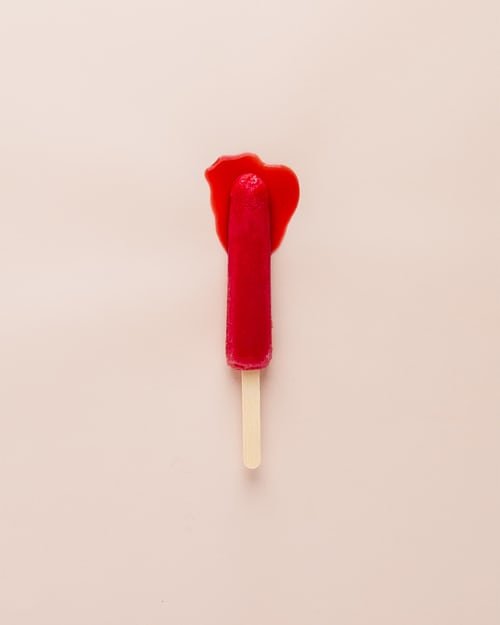To Bleed Or Not to Bleed
“Women Don’t Need to Bleed” was a headline in The Guardian newspaper in the UK on July 18th.
My immediate response, I’ll be honest, was to roll my eyes and mutter, “Of, for FU*CK’S sake.”
It makes a great headline, granted, but is it true?
The article was arguing two separate points: 1.) that women on the Pill should dispense with their Pill-free week because it is unnecessary, and 2.) that women should take hormonal birth control to get rid of their natural cycle.
These are two very different things.
Let’s focus first on women who are on the Pill. I still speak to women who think they’re having a period during their Pill-free week. They see it as reassurance they’re not pregnant. It’s not a period. It’s a withdrawal bleed. Theoretically, that Pill-free week isn’t necessary so women on the Pill could take the drug continuously and not have that bleed. They don’t need it for the Pill to work. Now, what’s the impact over years of the additional drug-intake? One contributor in the article, a doctor, admits, “more research is needed.” I’ll say.
But that’s one thing. The other is the idea of taking the Pill or another form of hormonal contraception, NOT to prevent pregnancy, but purely to remove the inconvenience of your period. That’s when I get a bit antsy. Now, I understand that for a lot of women their period is a source of misery and dread. What frustrates me is that they don’t know that it doesn’t need to be. They put up with the misery because they’ve been told that’s ‘normal’. It may be your normal, but it doesn’t have to be. I have not worked yet with a woman whose cycle couldn’t be improved, often dramatically, with simple nutritional and lifestyle interventions and 3-6 months of targeted supplements.
· Heavy bleeding?
· Sore boobs?
· Period pain?
· Horrendous PMS?
There will be a reason for any or all of these and they can all be addressed by exploring their root cause. Your body is telling you to get some help. Unfortunately for most, that comes via a prescription pad. It doesn’t have to.
Shoving a gazillion more women on hormonal birth control, to my mind, is not the answer. It’s just plastering over the problem with a drug. And what is the impact of hormonal contraception on our bodies? Especially if it’s taken for 10, 20, or even 30 years? How many women are informed that the Pill depletes vital nutrients including B vitamins, magnesium, zinc and selenium, and that these deficiencies impact their health too? Not many. (Dr Jolene Brighten is an amazing resource on all things post-Pill. Check out her work.) Oh, and BTW, let’s not forget that as a drug the Pill and its associates can come with their own list of side effects including depression, headaches, migraines, nausea, weight gain… and the list goes on.
Oestrogen and progesterone are the main hormones that control our menstrual cycle. Their ebb and flow through the ‘month’ prepare the body each cycle for a possible pregnancy. But if you don’t want to get pregnant, what’s the point of them? Let’s shut ‘em down! Why do we need to bleed?
Well, while the role of these two key female hormones is predominantly to prepare, allow and develop a pregnancy, both oestrogen and progesterone support woman’s health in other ways. They impact our mental acuity, our libido, our bone, cardiovascular and even immune health. Progesterone is your happy hormone. That’s the stuff that makes us chilled and aids sleep. It also helps protect your breasts and womb from cancer. Oestrogen also plays an important role in the production of collagen – so think good oestrogen levels, think youthful glow.
Want to use the Pill or similar for contraception? Fire ahead. But when I hear a 14-year old has been put on the Pill to help her skin, or reduce her period pain, I feel frustrated. There is another way. When I hear a woman whose periods have gotten heavier and heavier has been put on the Pill, I feel frustrated. There is another way. Or a peri-menopausal women being told to stay on the Pill for her 3rd decade to manage her low mood, I feel frustrated. Because? Yep… There. Is. Another. Way.
Period problems should not be accepted, ABSOLUTELY, but neither should they be masked. Now, a GP may well be involved in establishing underlying causes, but the answer may not have to lie in a pharmaceutical product taken for years and years.
Our cycle tells us a lot about what’s going on with our body. Whether or not you embrace the idea that our power as women comes from the different elements of our cycle or not, from a nutritionist’s point of view, if you’re having your period, it can tell me a lot about what’s going on with you. And if you’re struggling with it, nutritional therapy might be an easier solution to your problems than you think.
Women should be empowered to decide what is best for their body. Information empowers women. Choice empowers women. But what worries me is that women aren’t given the full picture. To make informed decisions, they need to know more about their bodies. There may be another way.
To find out more about working together to transform your cycle, book your FREE chat by clicking here.

